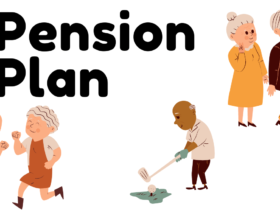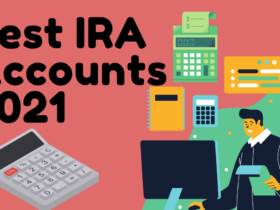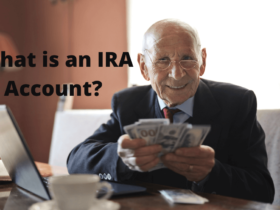It would be nice if you as a dividend interest entirely his retirement from social security benefits and income (usually stocks and bonds) can finance from their investments. Unfortunately, many retirees each year will need to cover a small percentage of less than selling income and the difference between the cost of your investment. The question is, who should sell the investment to bring money do you think?
Read Also- How Much Should You Save for Retirement?
Selling by account type-
Tax-deferred retirement into different types such as IRAs and 401 (k) as accounts. The Roth versions and possibly standard brokerage account with as well will invest most retirement accounts. If you hold the same investments in each of these three types of accounts. Depending on returns similar but the amount of money that it would be because in your pocket will vary differences. Learn about Pension Plan.
They are soon taxed as interest in dividend and standard brokerage accounts. And you will get hit by capital gains tax when you sell the investment in these accounts at a profit. Income in investments and traditional IRAs and 401 (k) can be tax-free. This includes being exempt from capital gains tax), but as soon as you take the money out. You pay income tax on it. Will be required for And Roth distributions are completely tax-free.
However, selling the investment you need for the income year will generate an exorbitant tax bill, you may need to take a portion of these funds from your Roth account just to keep your tax expense at an affordable level Can. Are you sure how to not juggle your distribution for tax purposes, consulting with a CPA or EA for guidance (enrolling agent)?
For example, the retirement case of Ron, who considers a traditional IRA is a worth $ 400,000 property, a Roth IRA, and a standard brokerage account (the latter 30,000 $ long term with $ 50,000 to $ 100,000 Is the benefit of). Ron your income needs to take a year of $ 40,000 back to the need to meet. If he gets his annual income by selling shares from his standard brokerage account, he will get hit with 15% of the profit or a long-term capital gain tax of $ 3,600, but he will not pay income tax on the money. He takes all the money from his traditional IRA, making some capital gains tax there, but he will pay an income tax (using the 2017 tax bracket) of $ 5,738.50 assuming that he has any other taxable income. And if he takes money from his Roth, he will pay no taxes on the return. Ron can also split his withdrawals, taking part of the money from each type of account to manage his tax bill, without dwindling too much of the Roth accounts assets.
Selling by investment type-
When the stock market is plagued by its periodic crashes. Spontaneous reaction “cut their losses” and often sell out of their stock. However, it is absolutely the worst time to sell – the market is at the bottom of it. This means that you will be buying high and low sales. To calculate the correct asset allocation is to use the results of a useful trick. To subtract your age from 110 and the percentage of investment you want to keep in stock.
For example, suppose that Ron is 70 years old and split 50-50 between their investments in stocks and bonds. It should be about 60% to 40% and bonds of its investment in an equity 110 minus 70, 40. In this case, the best move intended to sell enough stock Ron will reach 40% / 60% allocation. Selling more shares and creates the need for Ron’s income more money than that. He is a bit can be reduced and so the purchase of bonds using the additional funding that reaches his account right allocation is.
Other considerations-
There are certain factors that can complicate the decision to buy and sell. For example, once you are age 70 1/2 hit to take a certain minimum amount from your 401 each year (k) tax-deferred accounts, including the IRS. You will need and traditional IRAs, but Roth IRAs. So this distribution is non-negotiable means to do so you will be hit with a huge tax penalty, to do so. Thus, once you must reach the required age to start with your selling its investment-deferred accounts; You need to RMD calls for more money than you should have in your other accounts only if.
Their heirs inherit these accounts, basing those investments “resets” to the current fair market value. In other words, even if those investments had greatly increased in value since you bought them. Your heirs can sell them immediately without paying capital gains tax.
For example, Ron is a $ 30,000 return on investment in their $ 50,000 brokerage accounts. He dies and his son Robert leaves those investments. He could give no taxes to sell investments the next day for $ 50,000 and transactions.
The game can be very difficult due to various factors, due to which a financial advisor with experience in retirement accounts can be an extremely useful resource. After all, whatever fees you have to pay him. You will likely earn money back into saving money thanks to his advice.








